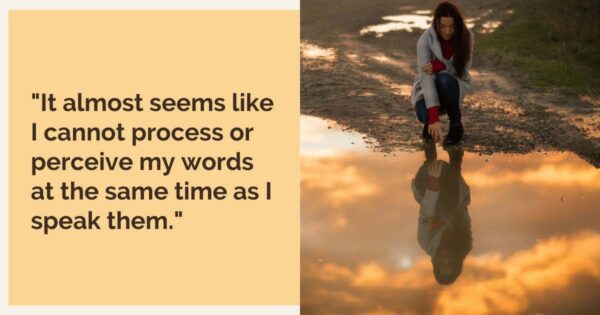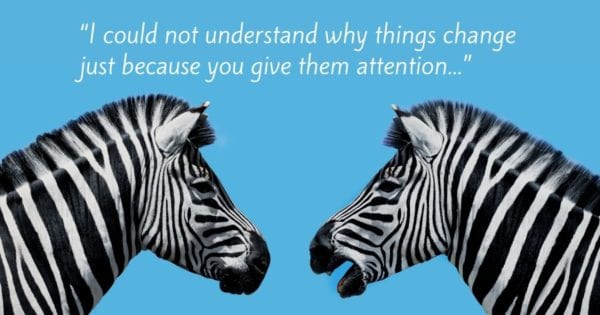“What she heard was all negative toward herself…”
~~~~~~~~~~~~~~~~~~~~~~~~~~~~~~~~~~~~~~
A Reader writes: “I was working with a directee in Focusing, and as she got more in touch with her feeling, she felt the pain as an anguish in her hands. As she started to dialogue with this, the response she was hearing was all negative, name-calling, degrading comments to herself. She immediately became very defensive and started name-calling
berating these comments, telling them to basically shut up, that she didn’t want to hear them anymore.
“How would I guide her to deal more appropriately with these feelings and comments? There was literally a battle going on within and between herself, but she felt like it was an outside force she wanted nothing to do with.”
Dear Reader,
Yes, that can happen! Like a cornered, desperate animal, a part of us can get so scared that it starts to attack. And then the Focuser can get identified with another part that reacts to being attacked with defensiveness. It’s hard to know how to intervene when that full-blown fight gets started!
So let’s talk first about how to avoid getting to that point. You say, “She felt the pain as an anguish in her hands … as she started to dialogue with this… ” but you don’t tell us what you actually said to invite her into that dialogue.
Might you have said, “What does it want to say to you?” ? I’ve heard that prompt many times over the years, and it often does not go well. I don’t recommend it, because it can lead to just what you describe.
Instead I’d recommend going slowly, inviting the Focuser to stay with the body feeling and check the description. “Anguish,” I would say. “Maybe you could offer that word ‘anguish’ to the feeling in your hands, and sense if that word describes well how it feels there, or if another word fits better.”
I want to stay very close to the Focuser’s felt experience, and I want to use invitations that support the Focuser in keeping contact with what is there, with a quality of acceptance and being with it just as it is.
So another thing I might say is, “Maybe you could let it know that you sense how anguished it is.” I might add, “You could let it know that you know it’s anguished for some good reason.”
Notice we are not asking what it wants to say. To me, that’s a big leap, and can be startling or even shocking to the process. If you go slower, and stay close, you’re much less likely to get those attacks.
~~~~~~~~~~~~~~~~~~~~~~~~~~~~~
But sometimes a Focuser does encounter an attacking part that starts to call him or her vicious names. When I hear that happening, I intervene very quickly, so there isn’t time for the Focuser to get identified with a part that reacts defensively.
The principle behind my intervention is that an inner attacking part is always afraid. No exceptions. Attacks come from fear… in the inner world, anyway.
So as soon as it starts to happen, I say: “Ah, sounds like something in you just got scared.” (And I understand that it might even have gotten scared because it felt pushed on by me, by something I said earlier…it happens.)
I want to support the Focuser in staying Self-in-Presence with their experiencing, so I will add, “Maybe YOU can let it know that you really sense how scared it is.”
The attacking part is really scared, and the Focuser is really Self-in-Presence, which I reinforce and support by saying “YOU” to the Focuser with a little emphasis on the word “you.” “Maybe YOU can let it know that you really sense how scared it is.”
This is likely to work… because having compassion for the fear that is under the attack is likely to keep the person in that larger Self-in-Presence, able to listen compassionately to what got scared.







